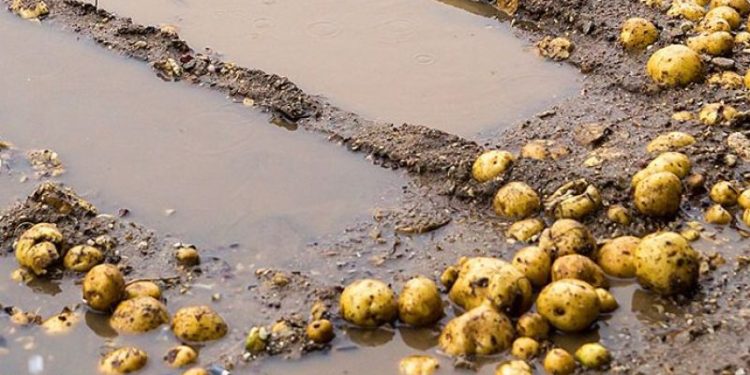#climatechange #agriculture #extremeweatherevents #potatoproduction #sustainableagriculture #greenhousegasemissions
The agricultural industry is facing significant challenges due to climate change, and extreme weather events are becoming more frequent and severe. In this article, we will explore the impact of extreme weather events on potato production, specifically focusing on the recent loss of more than half of early potatoes in Spain due to a severe storm.
According to the latest data, a severe storm in Spain has caused the loss of more than half of the early potato crop. The storm hit several regions in Spain, including Andalusia and Murcia, which are major potato-growing areas. The damage has been significant, and farmers are struggling to recover from the loss of their crops.
This is just one example of how extreme weather events can have a devastating impact on agriculture. Climate change is causing more frequent and severe storms, droughts, and other extreme weather events, which are affecting crop yields and food production globally. The potato is just one crop that is vulnerable to the effects of climate change, and it is crucial that we take action to mitigate these impacts.
To adapt to the changing climate, farmers and agricultural professionals must implement sustainable practices that can help reduce greenhouse gas emissions, conserve soil and water resources, and improve the resilience of crops. This can include practices such as crop rotation, reduced tillage, cover cropping, and the use of precision agriculture technologies.
Extreme weather events are becoming more frequent and severe due to climate change, and this is having a significant impact on agriculture. The recent loss of more than half of early potatoes in Spain due to a severe storm highlights the vulnerability of our food systems to the effects of climate change. We must take action now to reduce greenhouse gas emissions and implement sustainable agricultural practices to build resilience in our food systems.







